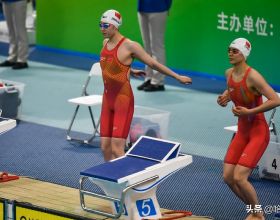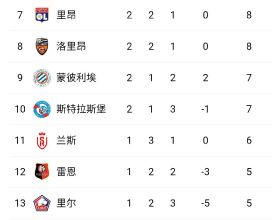編者按
自2019年以來,ADC(antibody-drug conjugate,抗體藥物偶聯物)藥物開始嶄露頭角,並逐步登上了抗腫瘤藥物的主流舞臺,得到大家廣泛的關注,目前已經用於尿路上皮癌(urothelial carcinoma,UC)的治療。本期由山東大學齊魯醫院史本康教授分享ADC藥物研發歷程及其在尿路上皮癌中探索的驚喜發現。歡迎關注!

史本康 教授 山東大學齊魯醫院泌尿外科主任,山東大學二級教授,主任醫師,博士生導師,“泰山學者”特聘專家
抗體偶聯藥物(antibody drug conjugate,ADC)是由抗原特異性靶向作用的單克隆抗體和高活性細胞毒類化學藥物偶聯而成,將高效的細胞毒藥物直接遞送到腫瘤靶部位殺傷或消滅病灶細胞,並且能顯著降低化學藥物的全身毒性,從而提高治療安全窗,是一種很有潛力的新型腫瘤靶向治療藥物。近年來ADC藥物一直是腫瘤精準治療領域的熱門研究方向之一。全球已開展的ADC臨床研究已接近200項。我國已有20多個ADC進入臨床不同階段研究,尿路上皮癌領域熱度較高的靶點包括:TROP-2、Nectin-4、HER2等。
其中Trop-2是非常理想的ADC類藥物的靶點,多瘤種高表達,尿路上皮癌和前列腺癌陽性表達比例都很高,腎癌也有超過20%的陽性表達。
Trop-2是一種46kDa的單體糖蛋白,具有選擇性過度表達、結構性內吞作用和導向溶酶體等待性,而且與正常細胞相比,Trop-2在腫瘤細胞中發生內吞作用更強,這些可以證明,Trop-2是ADC的一個非常有吸引力的靶點。
全球首個Trop-2 ADC
Trodelvy戈沙妥珠單抗(Sacituzumab govitecan,SG)是全球首個Trop-2 ADC。基於TROPHY-U-01研究結果,FDA於2021年4月13日加速批准其用於先前接受過含鉑化療以及PD-(L)1抑制劑治療的區域性晚期或轉移性尿路上皮癌患者,且用藥前無需常規檢測Trop-2表達。
TROPHY-U-01研究是一項全球、開放標籤、多佇列的Ⅱ期研究:
其中,佇列1入組了113例既往接受過含鉑化療和免疫檢查點抑制劑治療的患者。66.4%的患者伴有內臟轉移,既往治療中位線數為3。中位隨訪9.1個月時,ORR為27%,77%的患者可測量病灶縮小。中位起效時間為1.6個月,中位緩解持續時間為7.2個月,中位無進展生存時間為5.4個月,中位生存時間為10.9個月。因為治療相關不良事件而終止治療的患者比例僅為6%。
此外,一項Ⅲ期驗證性試驗TROPiCS-04(NCT04527991)已經啟動,計劃全球招募482例區域性晚期尿路上皮癌或轉移性尿路上皮癌患者。這些患者在接受含鉑化療和免疫治療後發生進展,其中包括了新輔助/輔助治療階段含鉑化療結束後12個月內疾病復發或進展、序貫免疫治療的患者。
【參考文獻】
[1] Beck A, Goetsch L, Dumontet C, et al. Strategies and challenges for the next generation of antibody-drug conjugates [J]. Nat Rev Drug Discov, 2017, 16(5): 315-337.
[2] Thomas A, Teicher B A, Hassan R. Antibody–drug conjugates for cancer therapy [J]. Lancet Oncol, 2016, 17(6): e254-e262.
[3] Gorovits B, Krinos-Fiorotti C. Proposed mechanism of off-target toxicity for antibody-drug conjugates driven by mannose receptor uptake [J]. Cancer Immunol Immunother, 2013, 62(2): 217-223.
[4] Kalim M, Chen J, Wang S, et al. Intracellular trafficking of new anticancer therapeutics: antibody-drug conjugates [J]. Drug Des Devel Ther, 2017, 11: 2265-2276.
[5] Peters C, Brown S. Antibody-drug conjugates as novel anti-cancer chemotherapeutics [J]. Biosci Rep, 2015, 35(4): e00225.
[6] Staudacher, A.H. and M.P. Brown, Antibody drug conjugates and bystander killing: is antigen-dependent internalisation required? British Journal of Cancer, 2017 Dec 5;117(12):1736-1742.
[7] Strebhardt, K. and A. Ullrich, Paul Ehrlich's magic bullet concept: 100 years of progress. Nature Reviews Cancer, 2008 Jun;8(6):473-80.
[8] Pento J T. Monoclonal antibodies for the treatment of cancer [J]. Anticancer Res, 2017, 37(11): 5935-5939.
[9] Norsworthy K J, Ko C W, Lee J E, et al. FDA approval summary: Mylotarg for treatment of patients with relapsed or refractory CD33‐positive acute myeloid leukemia [J]. Oncologist, 2018, 23(9): 1103-1108.
[10] van Der Velden V H, te Marvelde J G, Hoogeveen P G, et al. Targeting of the CD33-calicheamicin immunoconjugate Mylotarg (CMA-676) in acute myeloid leukemia: in vivo and in vitro saturation and internalization by leukemic and normal myeloid cells [J]. Blood, 2001, 97(10): 3197-3204.
[11] Junutula J R, Raab H, Clark S, et al. Site-specific conjugation of a cytotoxic drug to an antibody improves the therapeutic index [J]. Nat Biotechnol, 2008, 26(8): 925-932.
[12] O'Donnell P, GalskyMD, Rosenberg JE, et al. EV-201: Long-term results of enfortumab vedotin monotherapy for locally advanced or metastatic urothelial cancer previously treated with platinum and PD-1/PD-L1 inhibitors [J]. Ann Oncol, 2020, 31(Supl 4): S579-S580.
[13] Yu EY, Petrylak DP, O'Donnell PH, et al. Enfortumab vedotin after PD-1 or PD-L1 inhibitors in cisplatin-ineligible patients with advanced urothelial carcinoma (EV-201): a multicentre, single- arm, phase 2 trial[J]. Lancet Oncol, 2021, 22(6):872-882.
[14] Thomas P, Jonathan ER, Guru PS, et al. Enfortumab vedotin in previously treated advanced urothelial carcinoma[J]. N Engl J Med, 2021, 384(12):1125-1135.
[15] Tagawa ST, Faltas BM, Lam ET et al. Sacituzumab govitecan (IMMU-132) in patients with previously treated metastatic urothelial cancer (mUC): Results from a phase I/II study. J Clin Oncol 2019; 37: 354.
[16] Tagawa ST, Balar AV, Petrylak DP, et al. TROPHY-U-01: a phaseⅡopen-label study of sacituzumab govitecan in patients with metastatic urothelial carcinoma progressing after platinum- based chemotherapy and checkpoint inhibitors[J]. J Clin Oncol, 2021, 39(22):2474-2485.
[17] Grivas P, Tagawa ST, Bellmunt J, et al. TROPiCS-04:study of sacituzumab govitecan in metastatic or locally advanced unresectable urothelial cancer that has progressed after platinum and checkpoint inhibitor therapy[J]. J Clin Oncol, 2021, 39(Supl 6):695-697.
[18] Sheng XN, Yan XQ, Wang L, et al. Open-label, multicenter, phaseⅡstudy of RC48-ADC, a HER2-targeting antibody-drug conjugate, in patients with locally advanced or metastatic urothelial carcinoma[J]. Clin Cancer Res, 2021, 27(1):43-51.
















